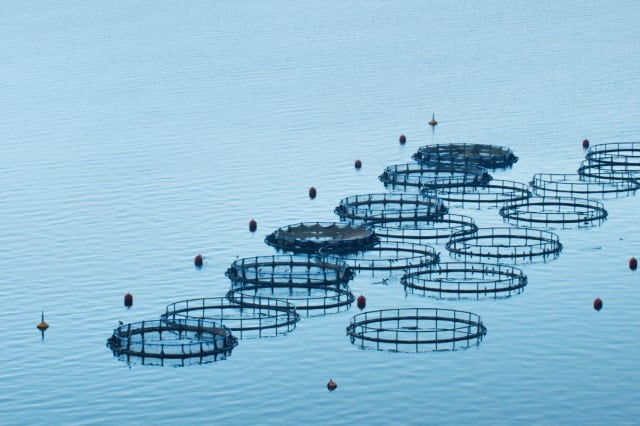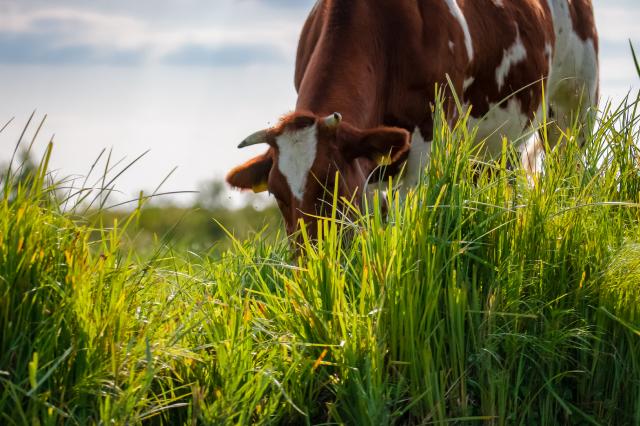Without knowing it, we make decisions everyday that we don’t always know the full impact of. We almost have a ‘choice overload’, and this often means we’re left choosing the default option without thinking about the consequences. Here, we dive deep into a topic that few people know much about – the fishing that happens at least 200 nautical miles off national jurisdictions in international waters. We occasionally hear about this when a big ‘super trawler’ comes to town, but we don’t always make the connection that our own personal choices can in fact push the market in the very direction where we don’t want it to go.
You’re speaking at the Festival of Dangerous Ideas in Sydney soon, why is your idea – that we should close the high-seas to fishing – dangerous?
“It’s dangerous because it would be a very bold policy move, and it would essentially be a way of making things a little bit fairer in the world. At the moment, 70% of the landed value of catches from the high-seas accrues to just 10 countries. These 10 are generally the slightly richer countries, including America and Spain, but also others like China and Taiwan. This is important because it means that although the high seas are supposed to be open to all, only a few can make significant use of them.”
But you are optimistic that it is actually something that could happen – that we’d stop fishing the high seas altogether?
“It’s a very unfair system. Some of the poorest people who depend on fish protein – subsistence fishermen in developing countries – are getting a raw deal. The way it is now, it’s taking food and livelihoods away from people who need it the most. The architecture for most of the fishing in open water rests on huge fishing subsidies. They’re about $35 billion a year, and rich countries hand out about 70% of them. So there is a massive market-distortion taking place. It’s very far from a level playing field. Fishing subsidies are often handed out to help with things like the cost of fuel, and happily one target of the UN’s Sustainable Development Goals aims to trim those which contribute to overcapacity in global fishing fleets. But more needs to be done, and quickly.
“The World Bank estimates that the market distortion from fishing subsidies costs the global economy over $80 billion a year – it certainly did in 2012 – so it’s not that everything is hunky dory as it is. This means that individual fisherman, who wake up at 4am each morning to catch, and spend months away from their families, only receive cents on the dollar of their catch. It’s not only an environmental problem – it’s a human one. Effectively at the moment, certain fishermen from rich countries are being paid to make the problem worse.
“It’s a dangerous idea because we’re talking about disrupting an entire industry in a way that society has struggled to change for centuries. This idea is trying to take on and acknowledge that right now there is a lot of unfairness in the system, and trying to do something about it.”
So as soon as people hear the words, ‘stop fishing’, they might be likely to switch off or become quite upset because a lot of livelihoods depend on it. What would you say to those people?
“I think fishing is fantastically important. And I think that’s in part why it’s vital that we reconsider our own relationship with it. Fish stocks everywhere are in trouble, and we can’t carry on as we are now. According to the UN’s Food and Agriculture Organisation (FAO), 90% of fish stocks are fished to maximum capacity or beyond it – they’re fished to an unsustainable extent, which means basically, we cannot carry on like this or fish stocks will collapse. So if you care about fishing in the future and the livelihoods of fishermen, then you need to think about how it can be more sustainable.
“There are studies that show that we can actually give fish a kind of ‘breathing space’, a potential regeneration zone, in which fish stocks can recover by not fishing the high-seas. For centuries, that was what the high-seas did because the technology didn’t exist to chug all the way out there, so fish had a huge zone where they could get away from fishing boats… There would certainly be scope for allowing fishing back in the future if we stopped fishing the high-seas.”
Why is the problem worse now?
“There are a few factors –better technology to fish with and fish consumption is higher per head than it’s ever been. Average global fish consumption per capita is now above 20 kg per year according to the FAO. In terms of technology, we have better mapping capabilities, the ships are bigger so they have more storage, and we’ve developed better freezing technology over the last few decades too – so the fishermen can keep the fish fresh for the long journey home from the open ocean.”
You cover a lot of topics as a journalist for The Economist –why are you specifically interested in fishing of the high-seas?
“I think it’s interesting to interrogate the ways we view our planet. We call it Earth, but actually the vast majority of our planet is water. But you know, we don’t call it the planet ‘Water’. There’s kind of intrinsic bias in the way we view the environment around us, and I think sometimes, the ocean doesn’t get its fair share of protection.
“For example, on land over 8% of land mass is legally protected in some way to promote conservation. And the reason I came to the high seas is because it’s sort of ‘the place of all’ with the least protection of the ocean, and it is a huge proportion of the ocean. Over half of the ocean is actually designated high seas, and by comparison less than 1% of the high sea is actually under some kind of legal protection to promote conservation. So you’ve got 8% versus 1% although there’s so much more water on the planet Earth.
“I think, if we introduce a framework like the Paris climate agreement at COP21 where 187-odd countries commit to tackle problems with the atmosphere, we can certainly have try to consider making a global agreement for the ocean. But I don’t think we’d see a fully-fledged Treaty emerge to protect the biodiversity of the high-seas for another couple of years, and it’ll deal with many topics. Fishing might come under some of it, but it’s not going to be as bold an idea as closing the high-seas to fishing altogether.”
Do we need fish as a more climate friendly source of protein than land based meat?
“Questions of diet are always going to be very difficult, but I absolutely believe that consumers want to help where it’s obvious how they can… It’s hard to tell people that they should be vegetarian, or that you should try and push certain lifestyle or cultural choices on people. It would be better for the environment if more people were vegan. But it’s going to be very hard to argue that when nutrition security is going to be such a problem in the future. There are differences between more ideal solutions and more pragmatic ones.
“Fish farming has a massive role to play. And we’re getting better at doing that in a more environmentally friendly way, and ensuring we can feed fish certain food stocks that essentially help to reduce the amount of pollution going into the water, so you minimise water waste and things like that in aquaculture.”
On the topic of aquaculture, do you think that fish can be farmed sustainably in both developed and developing countries?
“I’m certainly very optimistic about aquaculture. It all depends on getting proper storage facilities and nutritious feed stocks, and ensuring the health of the fish is of primary importance. There are already some massive leaps forward in terms of aquaculture – China is often leading the way. There are even scientists around the world who are working on high-protein vegetarian diets for aquaculture fish, so there’s work underway to tackle this angle too.
“To encourage sustainable aquaculture, we should be diverting subsidies that are going to fishing towards promoting aquaculture.”
Note: We sold our investment in Tassal in February 2016 due to concerns about the sustainability of farmed salmon feed supply. Here is more information on our position on Tassal and aquaculture.



